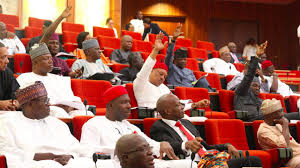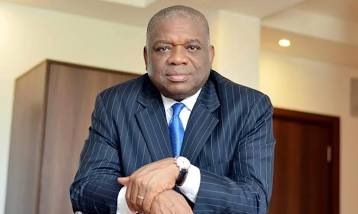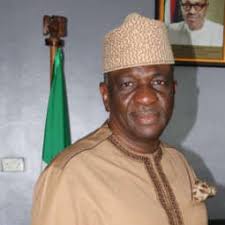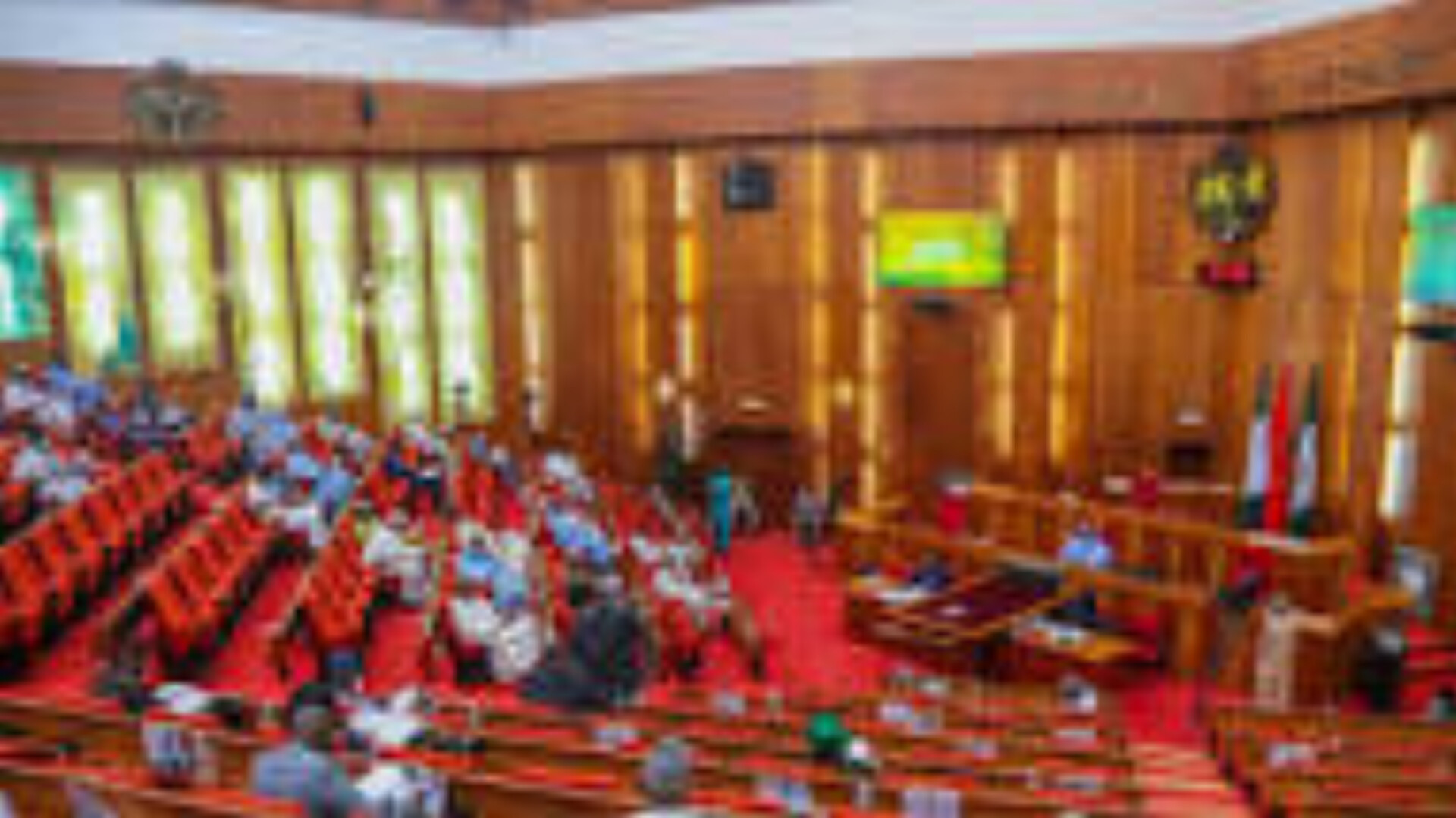Senate has constituted an adhoc committee to investigate alleged uneven disbursement of half a trillion naira loan to the six geo-political zones by the Development Bank of Nigeria, (DBN).
The red chamber, in its resolutions on a motion sponsored by Senator Ali Ndume (APC Borno South) and co-sponsored by Senator Ibrahim Bomai (APC Yobe South) on Wednesday, urged the bank to ensure equitable disbursement of the loan to all the zones and also expand its facilities beyond the sectors already captured.
The top five sectors considered for the loan are oil and gas (42.0%), manufacturing (16.0%), agriculture, forestry and fishery (7.2%), trade and commerce (6.3%), and transportation and storage (3.5%).

Deputy President of the Senate, Senator Ovie Omo-Agege, who presided over the plenary, named the chairman, Senate Committee on Banks, Insurance and other financial institutions, Senator Sani Musa as the chairman of the adhoc committee while Senators Ibrahim Danbaba (North West); Ayo Akinyelure (South West); Mathew Urhoghide (South South); Ali Ndume (North East); Uche Ekwunife (South East) and Sadiq Umar from the North Central as members.
The committee was given two weeks to do its findings and report back to the plenary.
While resenting the motion, Senator Ndume alleged that there is a huge disparity and uneven disbursement of half a trillion naira loan to the six geo-political zones and states in the country in 2021 by the DBN.
He specifically mentioned Lagos State as the major beneficiary with 47 percent of the total loan while the entire Northern region gets 11 percent.
The lawmaker said: “The bank’s Annual Integrated Statutory Report 2021 obtained on 13th July, 2022 from the organization’s website, indicated that it was able to disburse a loan worth N483,000,000 only out of which only 11% went to the 19 states of Northern Nigeria while 47% went to Lagos State alone.
“The 11% of the loan that went to the North totals about N53,130,000,000 and that the 47% that went to Lagos State alone totals N227,010,000,000 only.”
Senator Ndume expressed concern that “the loans were given to the the six geo-political zones, where the data showed that the South West accessed the lion’s share with 57% of the total loan, which is estimated to be around N273,740,000,000 only.”
He also expressed concern that “the South South accessed 17% which is roughly N81,940,000,000 only the Federal Capital Territory, FCT and the North Central accessed 11% which was N53,020,000,000 only, South East accessed a paltry 9% which was roughly N43,380,000,000 only, the North West, which has 5% accessed N24,100,000,000 only, while the North East accessed only 1%, the least share of the total loan at roughly N43,820,000,000 only.”
According to him, the DBN exists to alleviate financing constraints faced by the Micro, Small and Medium Scale Enterprises, MSMEs in Nigeria through providing finance, partial credit guarantees, and technical assistance to eligible financial intermediaries on a market-conforming and fully financially sustainable.
He, however, noted that lack of awareness of the existence of the loan or even the DBN, religious belief that precludes Muslims from taking interest loans, and lack of formalization of business as most loans require that one has a registered company, corporate bank account and a good business plan have hampered the uneven disbursement.




